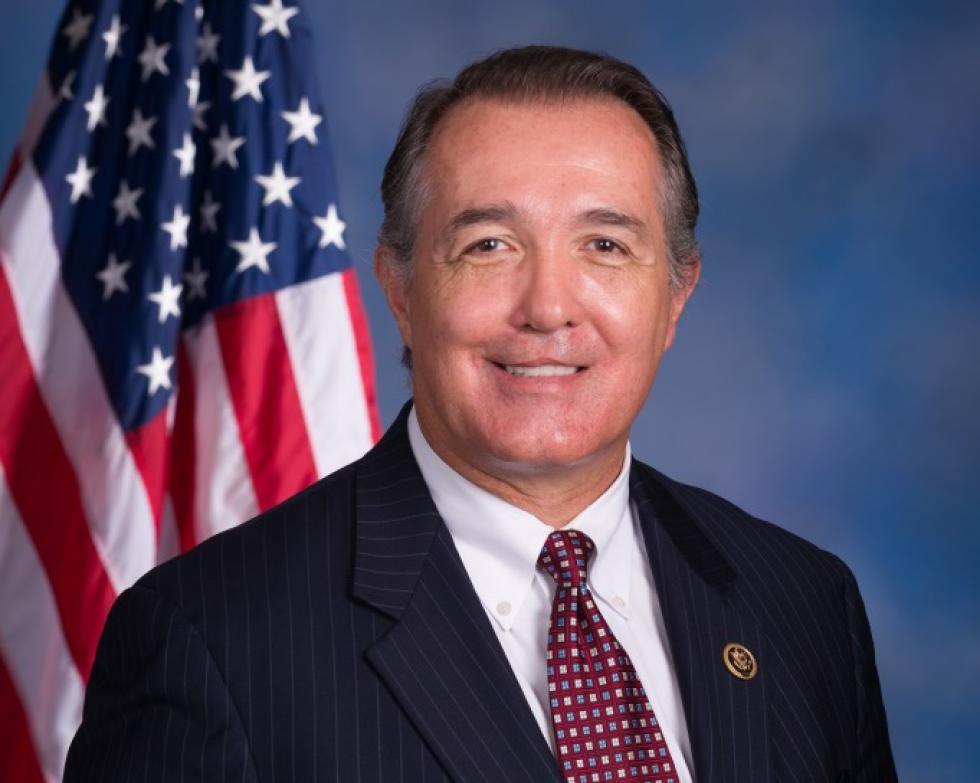Every congressional session U.S. Rep. John Conyers Jr. (D-Mich.) files H.R. 40, a bill to study the impact of slavery on the nation. And every congressional session it dies in committee.
That’s where the tenth submission of this bill, filed in January of last year, is rotting now.
The U.S. has been in dire need of a serious conversation about race and how it is interpreted today. H.R. 40 provides this opportunity on a national scale and we should take advantage of it.
∎ Because we need to get to the bottom of why the chances of a white American male being imprisoned at some point in his life is 1 in 17, while a black male faces a 1 in 3 chance; why African Americans comprise 14 percent of the nation’s regular drug users, but are 37 percent of those arrested for drug offenses; why the average lifespan of a black man is almost five years shorter than that of a white man; and so many more questions.
The U.S. is yet to have a serious discussion about what the injustice, cruelty, brutality, and inhumanity of slavery has done to the nation and its people — let alone what the legacy of slavery is doing to the country now. If we cannot reckon with the past, then there can be no healing — and I don’t need to go into detail about how the U.S. could use some racial healing right now.
There are some who say: slavery was a long time ago, why start digging at an old wound? The answe is simple: it’s filthy with gangrene.
H.R. 40 asks the U.S. “To acknowledge the fundamental injustice … of slavery in the United States and the 13 American colonies between 1619 and 1865 and to establish a commission to examine the institution of slavery, subsequently de jure and de facto racial and economic discrimination against African-Americans, and the impact of these forces on living African-Americans, to make recommendations to the Congress on appropriate remedies, and for other purposes.”
The House Committee on the Judiciary should recognize the importance of examining slavery, Jim Crow, segregation, and insidious institutionalized racism for the nation and move H.R. 40 to the House or Senate for debate. ∎
There’s little hope that this will happen, however. GovTrack.US, a site that records the history and current progress of bills and legislation entertained by Congress, gives the bill a 0 percent chance to get out of committee.
But I think H.R. 40 is what our nation needs.
The bill is with the committee’s subcommittee on the Constitution and civil justice. Here are the men who need to be convinced that examining slavery and ensuing racism is a worthy use of time: Subcommittee Chairman Trent Franks (R-AZ), Vice chair Ron Desantis (R-FL), Steve Cohen (D-TN), Theodore Deutch (D-FL), Louie Gohmert Jr. (R-TX), Jim Jordan (R-OH), Steve King (R-IA), and Jerrold Nadler (D-NY).
A couple of those names may look familiar. On the civil justice subcommittee — of all places — is Steve “legitimate rape” King and Louie “make sure your enemies suffer” Gohmert. These are just two of the minds that will likely never change on whether America needs to have a studious debate about, well, anything.
So, I propose people who want to have a serious conversation about race in America appeal to the chairman, Trent Franks. Franks, I’ve learned, doesn’t accept emails from people outside his district, Arizona’s eighth. So, it takes a little maneuvering to contact him. You’ll have to use an address in the 85308 zip code. Or call his D.C. office at (202) 225-4576. If you like, copy the portion of this editorial highlighted between the “∎” and paste it into Franks contact form at franks.house.gov/contact-me along with your name.
America is past ready for a talk about race and the institutionalized racism littering our government and community systems. America’s leaders should be the ones most committed to getting it going. Moving H.R. 40 out of committee is a good start.
In the meantime, a conversation about race and stereotype is racing across the Internet, with a brief stop at UMass Amherst. Through May 1 the UMass Museum of Contemporary Art will feature the exhibit, The Question Bridge — Black Males, a five-channel video installation featuring clips of black men from all around the U.S. asking and answering questions from each other. The goal is to give black men the space to redefine themselves in popular culture and dispel misconceptions.•
Contact Kristin Palpini at editor@valleyadvocate.com.




